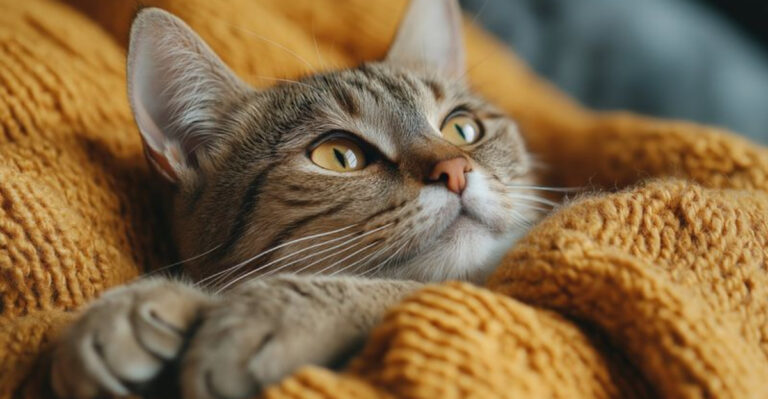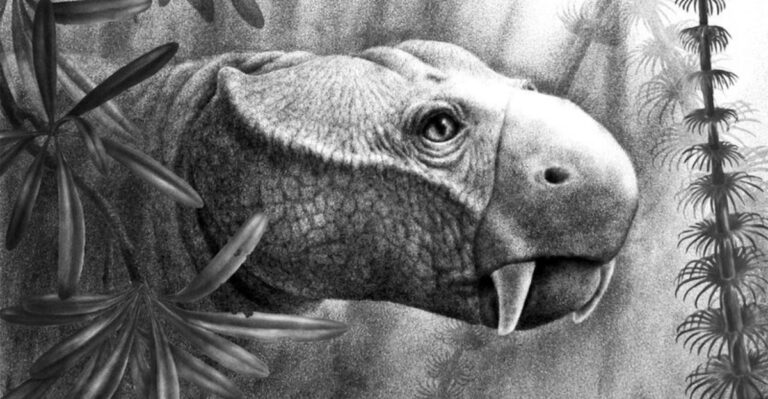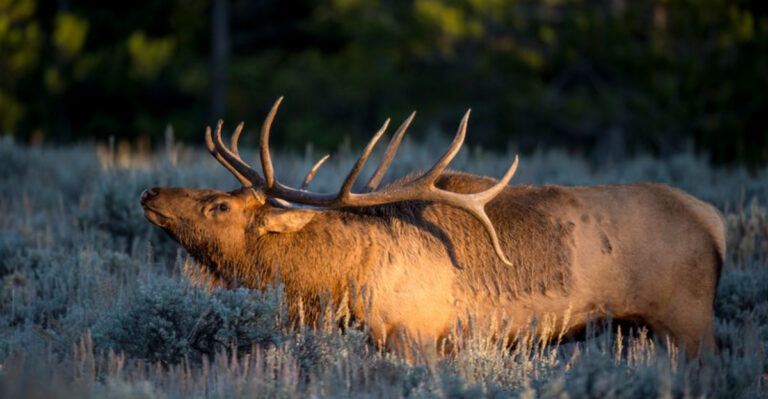14 Signs Your Rabbit Is Reaching The End Of Their Journey
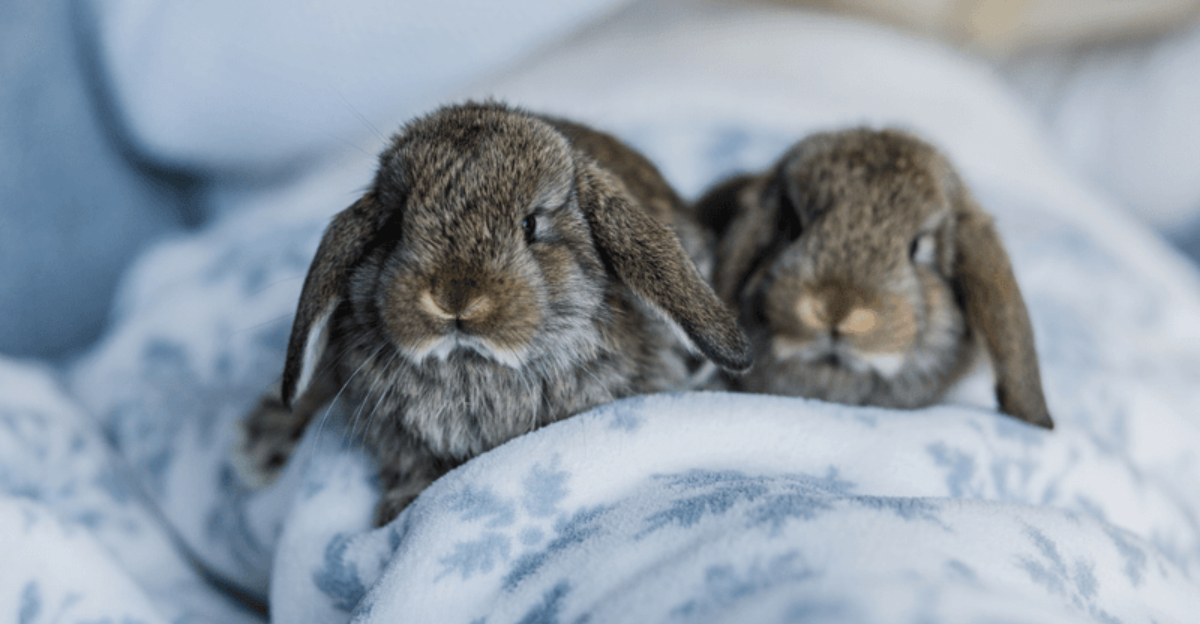
Imagine a time when your little furball seems more like a wise old sage, reflecting the passage of time in every whisker twitch.
It’s a tender journey, filled with moments both heartwarming and bittersweet. As these beloved companions age, they might communicate more through their actions than their hops. Here are 14 signs that your rabbit might be nearing the twilight of its life.
1. Appetite Decrease
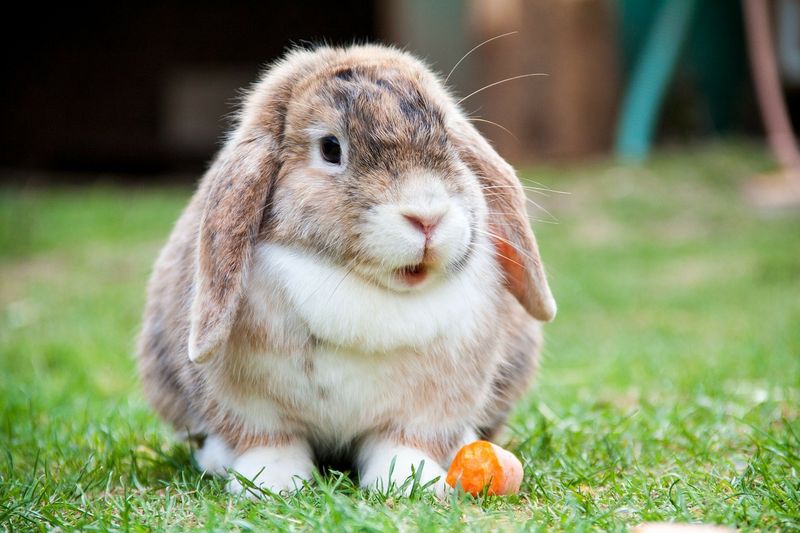
Picture this: your once-voracious muncher now sniffs at meals like it’s a delicate wine tasting. A decrease in appetite might be their way of saying they’re feeling a bit off. It’s like trading a gourmet dinner for tea and toast. Keep an eye on their eating habits, as changes can signal discomfort.
2. Hiding More Often
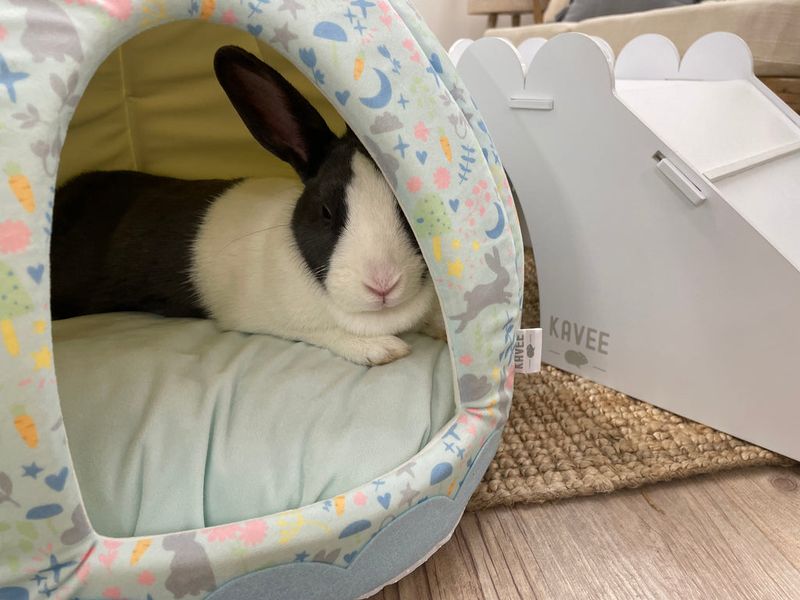
Remember the shy kid at the back of the class? Your rabbit might adopt this persona, seeking comfort in solitude. Increased hiding can mean they’re feeling less social and more introspective. Offer them a safe haven, but also ensure they’re not isolating due to sickness.
3. Reduced Activity
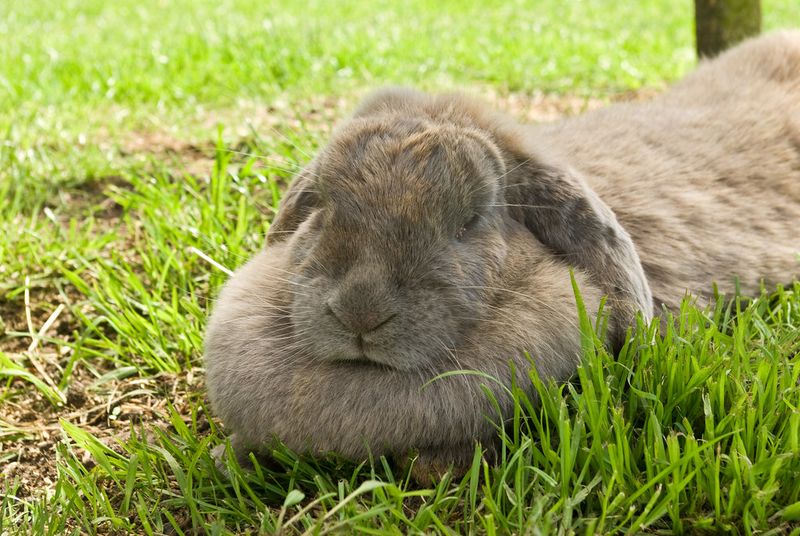
The zoomies days are fading; now, leisure is their new favorite speed. If your bunny’s boundless energy has slowed to a gentle waddle, it might be their way of conserving energy. Encourage gentle interaction, but respect their slower pace.
4. Changes In Sleeping Patterns
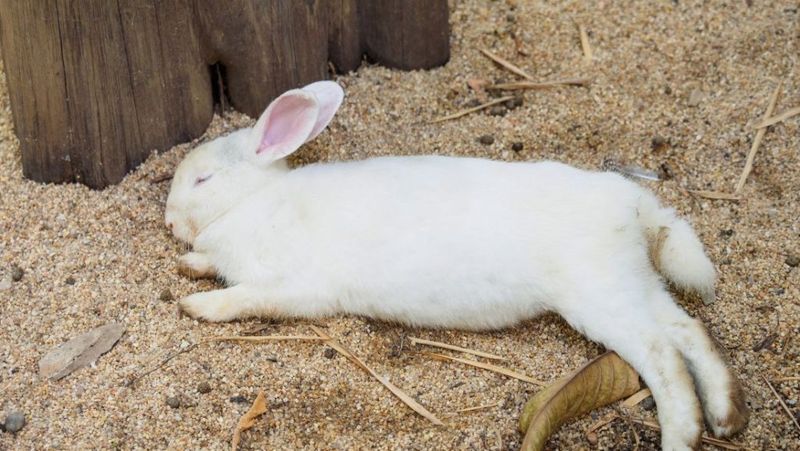
If naps have become an all-day affair, it might be a sign. As rabbits age, they may sleep more and at odd times, basking in sunlight or dozing in the shade. It’s like they’re savoring every peaceful moment. Keep their environment calm to enhance their rest.
5. Weight Loss
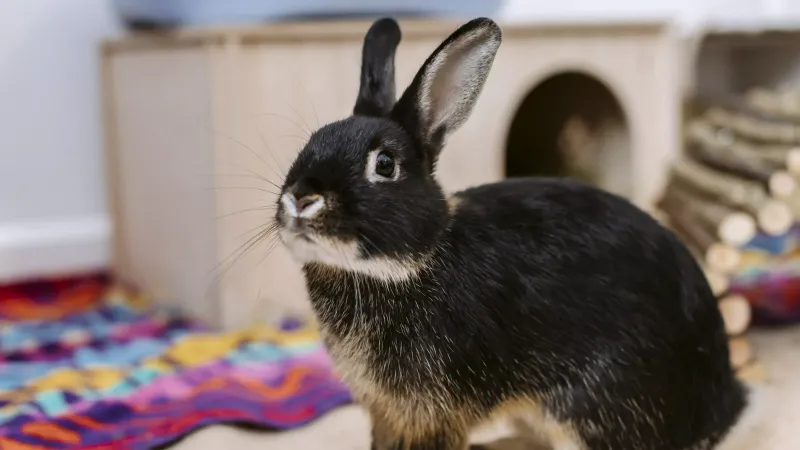
When your bunny’s fluff seems a bit less fluffy, and their frame more defined, weight loss could be occurring. It’s crucial to monitor their diet and consult with a vet. It might be a normal aging sign, or indicate health issues needing attention.
6. Difficulty Breathing
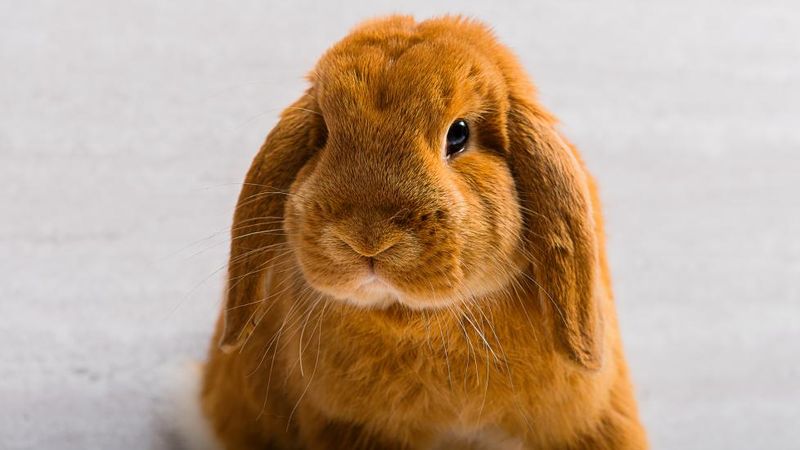
Breathing like a gentle whistle? If your rabbit is showing labored breathing or using their mouth to catch a breath, it’s more than a sign of age; it’s a call for help. Consult a vet to ensure they receive the support they need.
7. Change In Fur Condition
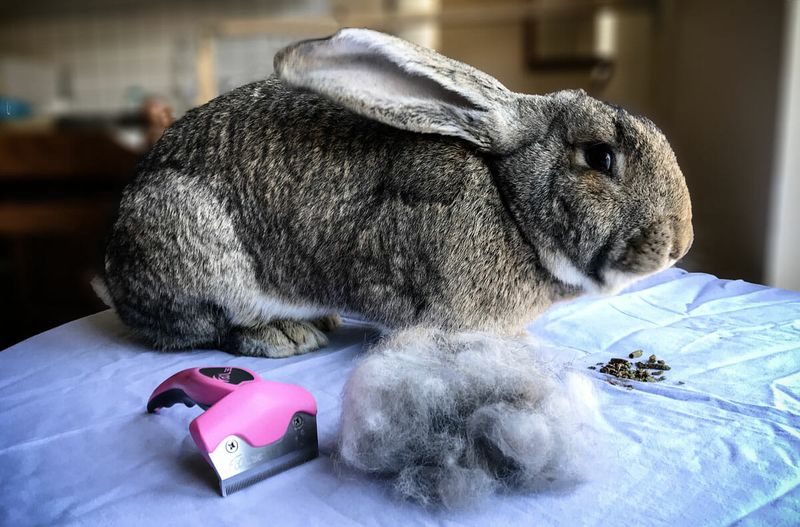
Once a glossy coat now looks like it’s seen a few too many Mondays. Aging bunnies might have rougher or patchy fur. It’s like they’re wearing their years proudly, but a check-up can ensure they’re comfortable and not dealing with skin issues.
8. Adjustments In Litter Habits
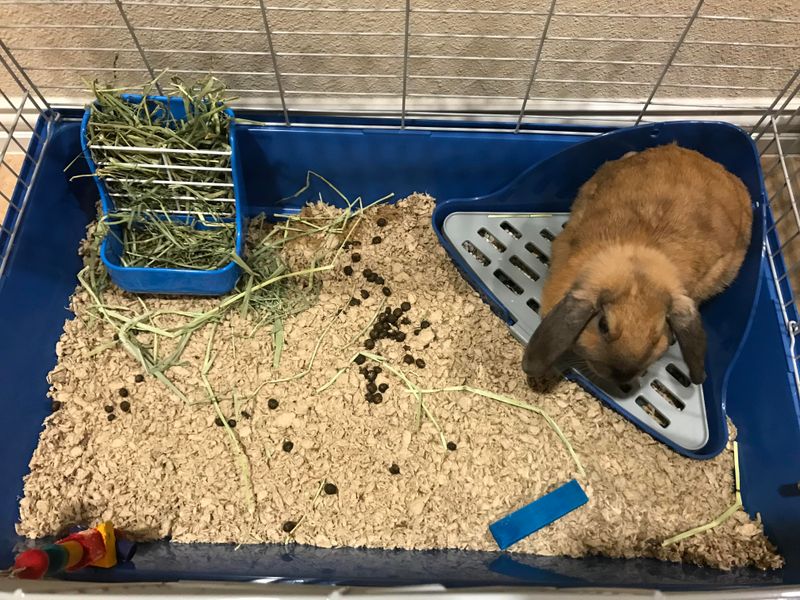
Accidents happen, even to the best of us. If your furry friend is missing the litter box, it could be a sign of age-related changes. Be patient and perhaps adjust their setup to make it easier for them to reach comfort zones.
9. Loss Of Muscle Tone
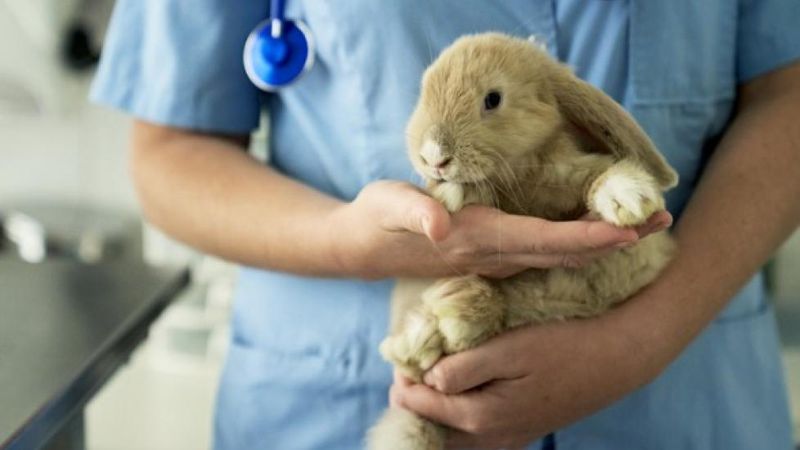
If your rabbit seems a little less robust, like an athlete post-retirement, they might be losing muscle tone. Gentle massages and mobility exercises can help, though embracing their new slow-and-steady pace is just as important.
10. Dental Issues
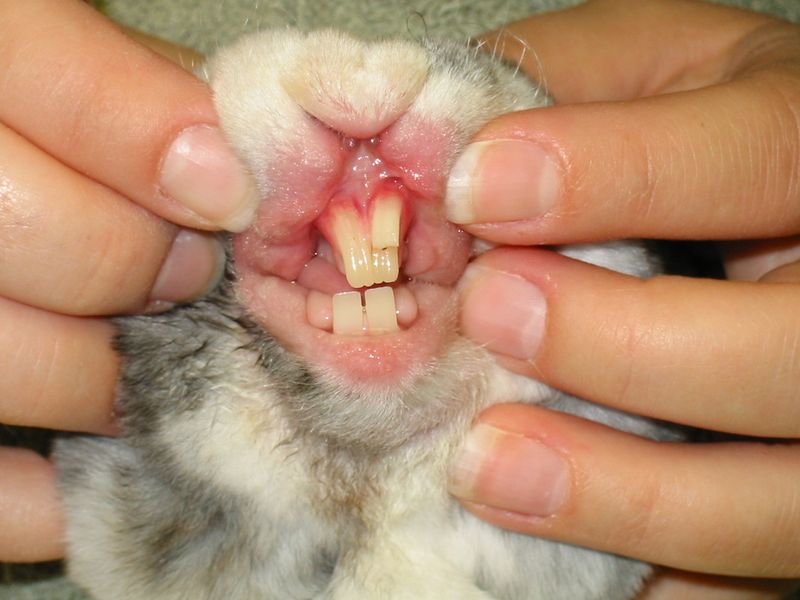
Chomping with caution? Dental issues in older rabbits can make eating a challenge. Overgrown teeth or discomfort might deter them from their favorite snacks. Regular dental check-ups can keep their chompers in check and their tummies satisfied.
11. Sensitivity To Temperature
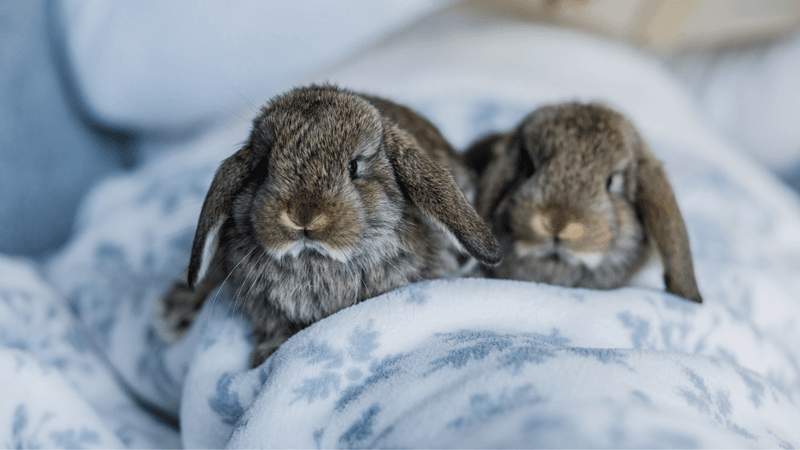
Bunnies might start to shiver under conditions they previously breezed through. A newfound sensitivity to temperature is common. Keep them cozy with blankets or a warm spot in the house, ensuring they stay comfy as the seasons shift.
12. Vision Problems
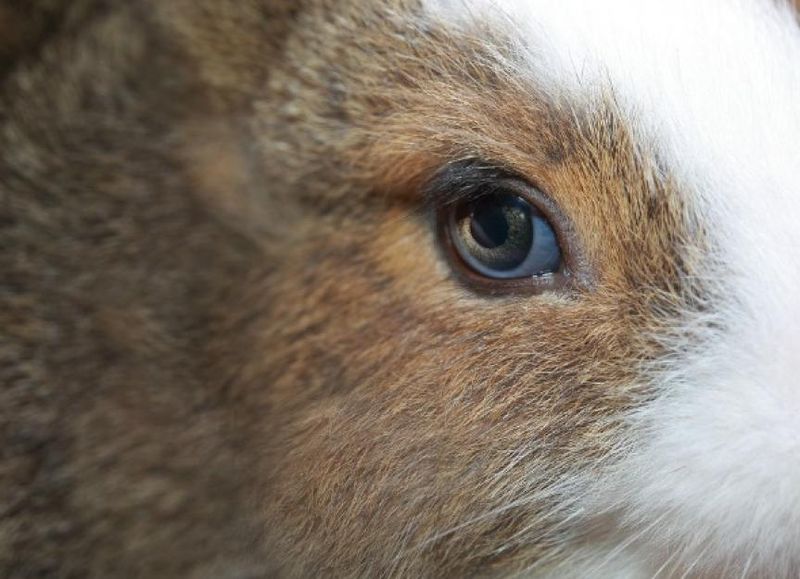
Is your rabbit bumping into furniture or hesitating before hopping? Cloudy eyes can signal vision decline. Create a safe space with fewer obstacles to ensure they can move around confidently, even if their vision isn’t crystal clear.
13. Hearing Loss
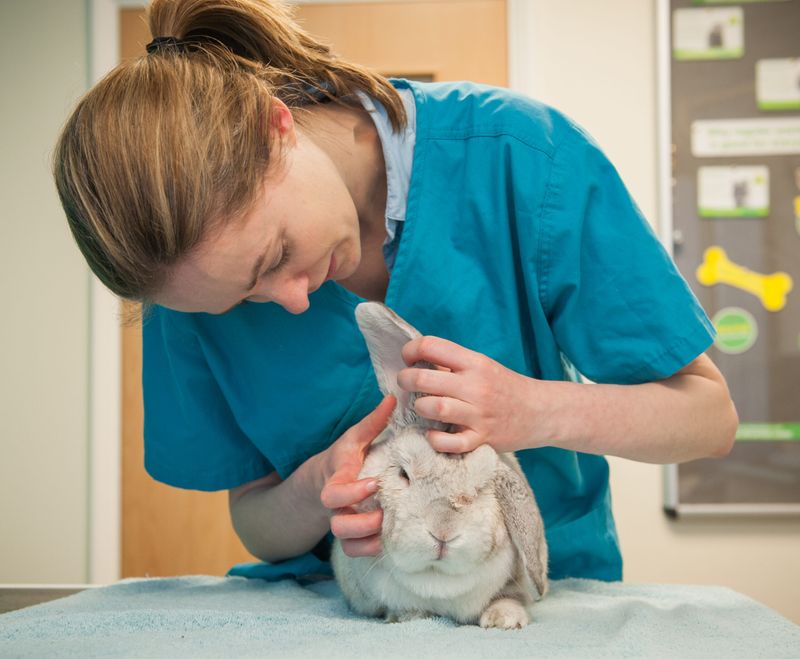
If your rabbit seems to be ignoring you, it might not be on purpose. Hearing loss can make them less responsive to familiar sounds. Approach them gently to avoid startling surprises, and perhaps communicate through touch or visual cues.
14. Behavioral Changes

Mood swings or a change in social behavior can be telling signs. If your once-snuggly rabbit prefers solitude or seems grumpier, it’s their way of navigating new feelings. Keep a watchful eye and offer comfort while respecting their need for space.


